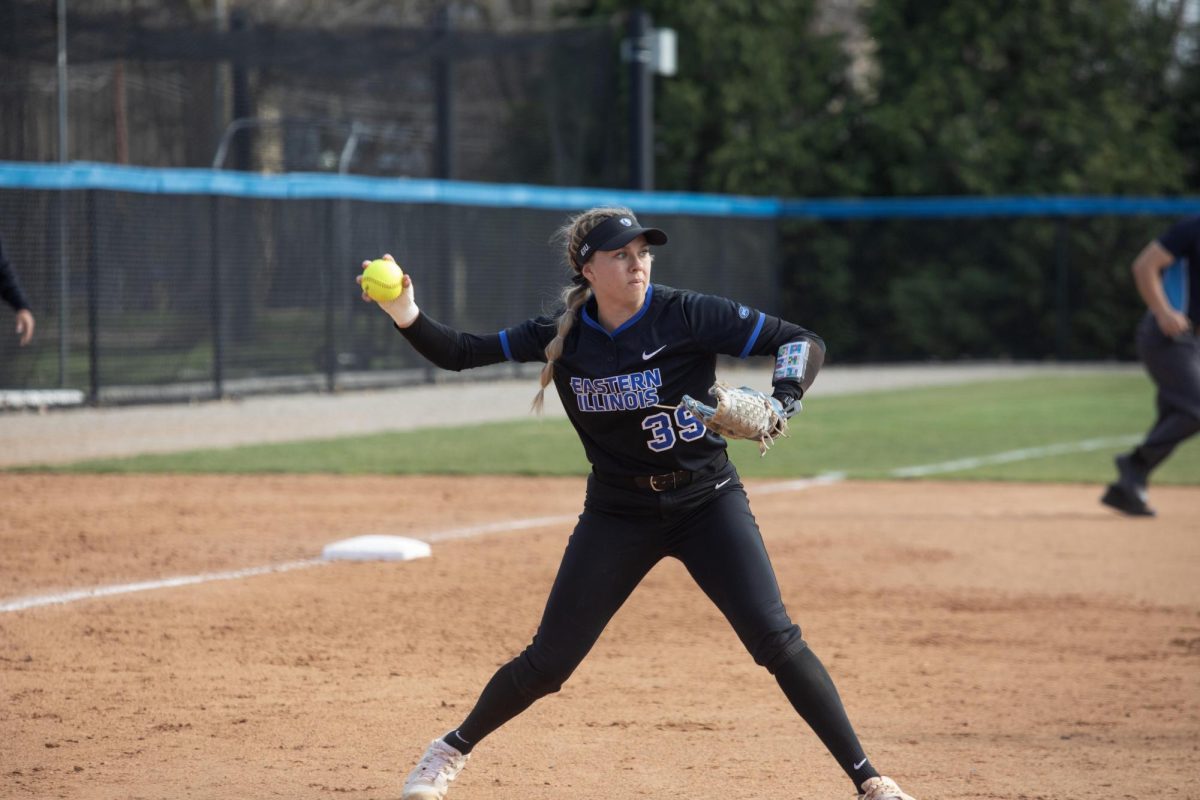Emotionally gripping and intimate is the best way to describe “We Live in Time.”
The film follows the story of Tobias (Andrew Garfield) and Almut (Florence Pugh) after Almut accidentally hits Tobias with her car, thus sparking the relationship the film follows including the good of having a child together and the bad of Almut being diagnosed with cancer.
Tobias and Almut are the central focus of the entire film, and both have amazing chemistry together.
Both actors can be deeply intimate one moment, like how one of their sex scenes caused the camera operator to turn around after the pair missed their cue, and then switch to be passionately aggressive the next.
The passionate aggression is mostly seen in Garfield’s performance with Pugh following suit in the latter half of the film.
With the main antagonistic force of the film being Almut’s cancer diagnosis, Pugh’s ability to have realistic breakdowns and bodily reactions like throwing up make her performance more immersive.
This immersion is also furthered by the close camera angles that always have a character’s face in frame, allowing the audience to feel as if they were in the same conversation as the characters on screen.
These clearly visible emotions and performances lead to a somber and bittersweet tone being present throughout the film’s hour and 48-minute runtime.
While the relationship between Tobias and Almut is the film’s focus, the attempt at adding background falls short.
It’s made clear that Almut is an up-and-coming chef through the film, as that’s what she was doing before meeting Tobias, but all we know about Tobias is that he’s a recent divorcee and cereal salesman.
Not having Tobias’ backstory be relevant throughout the film makes things feel dry and underdeveloped.
Throughout the film the concept of time continually pops up in dialogue between characters and in the film’s title.
The concept of time is prominent throughout the film to contextualize Almut’s point of view regarding her cancer.
In a scene shortly after her diagnosis, Almut tells Tobias about how she’d rather be happy and live her life for six months rather than be unhappy and do nothing for 12.
This serves to indirectly tell the audience that life is short, and that we should all make the most of it while we still can, something Garfield can relate to.
Following his mother’s recent passing, acting in this film helped Garfield grieve and come to terms with his loss in a beautifully spoken manner.
“When I miss her, I remember it’s because she made me so happy,” said Garfield on his “Sesame Street” appearance last month. “I can celebrate her and miss her at the same time.”
This sentiment is also apparent in the film, as it’s Almut’s desire to make memories with her daughter so there is something for her to remember Almut by.
That being said, the memories wanting to be made are hard to believe with as much as the film jumps around.
The film jumps between their first encounter and subsequent meetings, getting married and trying for a kid, and Almut’s cancer diagnosis and the effect it has moving forward.
It’s not impossible for a film to jump between different points of time, but this one doesn’t do it well.
In fact, it’s often quite confusing to piece together when events take place until you reach the halfway point of the film where the time jumps become more manageable and less frequent.
“We Live in Time” serves as an emotional film about a relationship’s evolution through the smooth and the rough but fails to capture any praise in terms of backstory and presentation within the plot.
Rating: 3.5/5
Luke Brewer can be reached at 581-2812 or at lsbrewer@eiu.edu.











![[Thumbnail Edition] Junior right-handed Pitcher Lukas Touma catches at the game against Bradley University Tuesday](https://www.dailyeasternnews.com/wp-content/uploads/2025/03/MBSN_14_O-e1743293284377-1200x670.jpg)

![[Thumbnail Edition] Eastern Illinois University baseball senior utility player Tyler Castro fields a ground ball during the team's first intrasquad scrimmage of the season on Jan. 31.](https://www.dailyeasternnews.com/wp-content/uploads/2025/03/BB_01_O-e1742874760130-1-e1742907504722-1200x911.jpg)
![[Thumbnail Edition] Senior Foward Macy McGlone, getsw the ball and gets the point during the first half of the game aginst Western Illinois University,, Eastern Illinois University Lost to Western Illinois University Thursday March 6 20205, 78-75 EIU lost making it the end of their season](https://www.dailyeasternnews.com/wp-content/uploads/2025/03/WBB_OVC_03_O-1-e1743361637111-1200x614.jpg)





































![The Weeklings lead guitarist John Merjave [Left] and guitarist Bob Burger [Right] perform "I Am the Walrus" at The Weeklings Beatles Bash concert in the Dvorak Concert Hall on Saturday.](https://www.dailyeasternnews.com/wp-content/uploads/2025/03/WL_01_O-1200x900.jpg)
![The team listens as its captain Patience Cox [Number 25] lectures to them about what's appropriate to talk about through practice during "The Wolves" on Thursday, March 6, in the Black Box Theatre in the Doudna Fine Arts Center in Charleston, Ill.](https://www.dailyeasternnews.com/wp-content/uploads/2025/03/WolvesPre-12-1200x800.jpg)



















